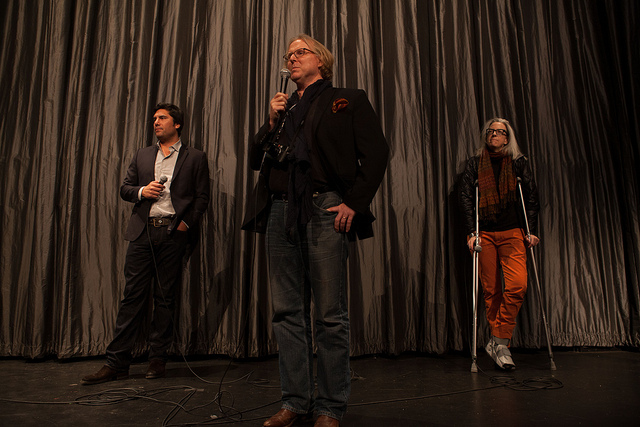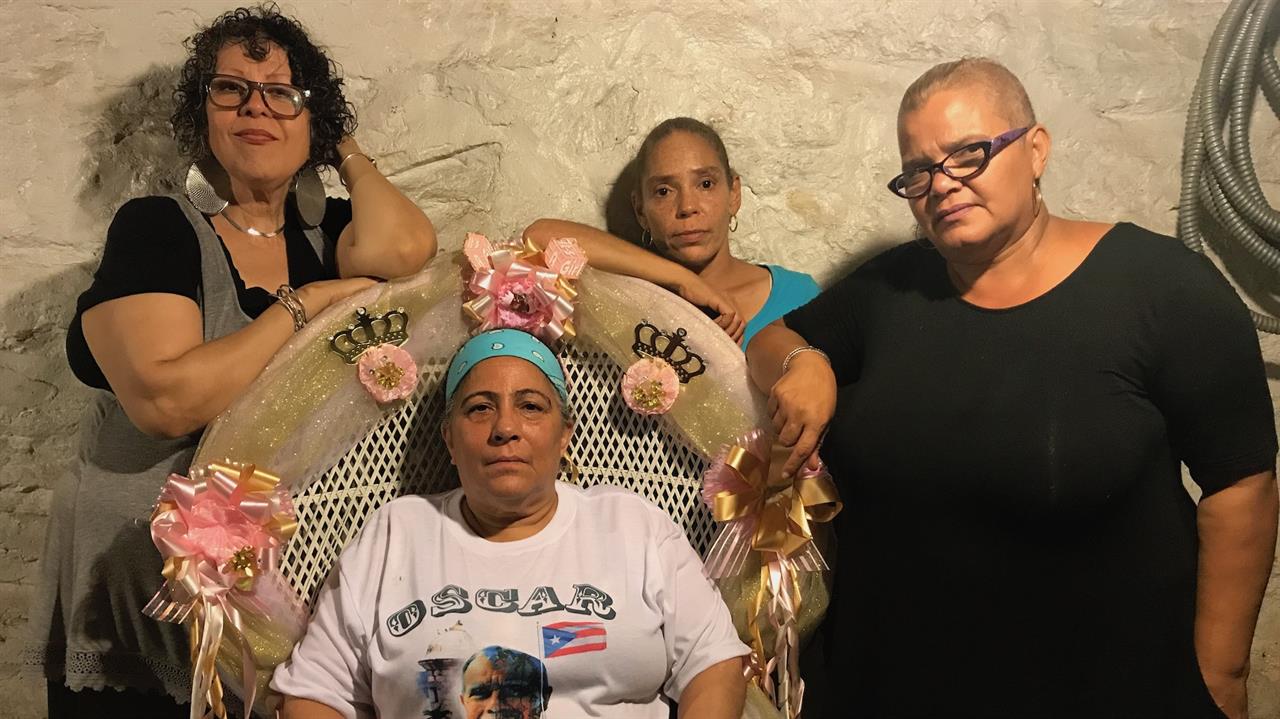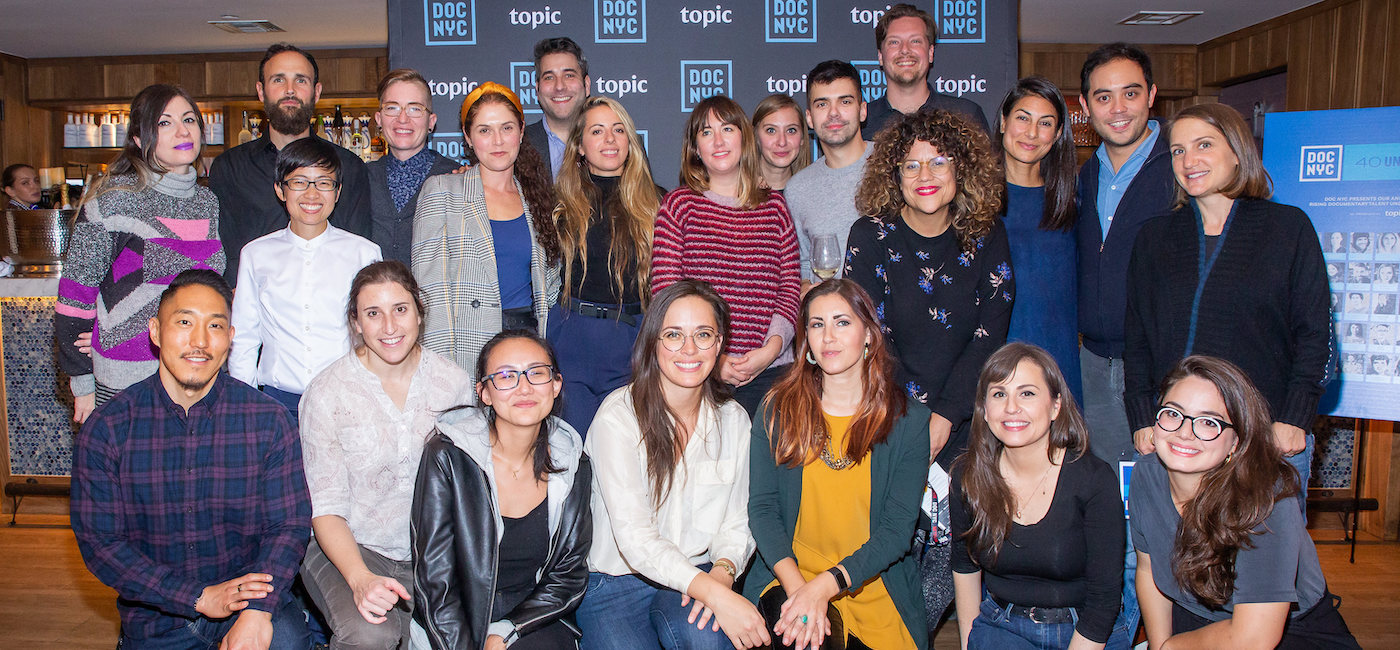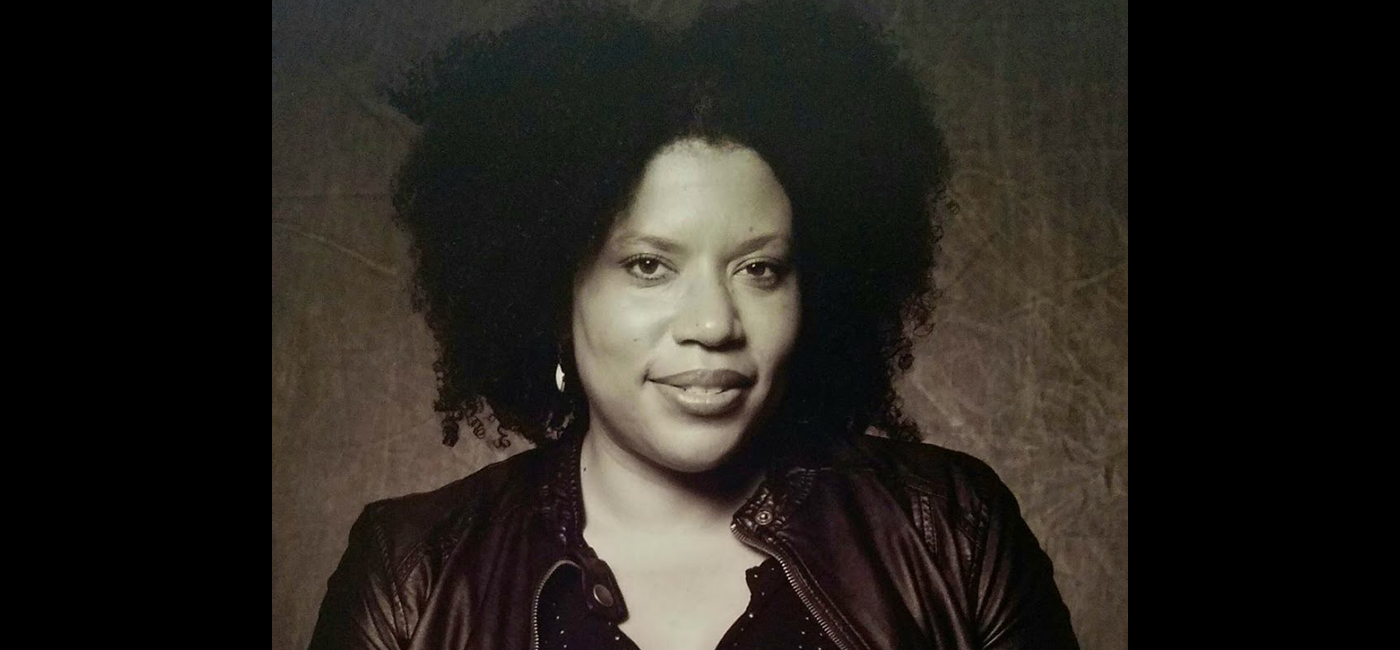Shenandoah: A Murder in Coal Country

This post was written by STF blogger Audrey Evrard

Director David Turnley, center, along with guests at the DOC NYC screening of SHENANDOAH.
Nestled in the hills of the Shenandoah Valley, the coal-mining town of Shenandoah looks as if it has been reduced to the ghostly version of what it once was. The industrial middle-class–many of whom are the sons and daughters of Polish, Lithuanian, Italian immigrants, and Pennsylvania Dutch miners–have come to the realization that they are now living paycheck to paycheck.
Church, hunting and high-school football are among the few sources of distraction and pride that maintain the social fabric and cohesiveness of this community. Or so they were until, on a summer night in July 2008, four of the high-school football team star players beat to death Luis Ramirez, a young illegal Mexican immigrant, father of two children and farm worker.
Pulitzer-winner photographer turned filmmaker David Turnley’s documentary follows in the steps of earlier films, most notably Christine Choy and Renee Tajima-Pena’s WHO KILLED VINCENT CHIN? (1987) as he seeks to understand what might have triggered such a tragic event. Halfway through the documentary SHENANDOAH, a long-time resident of the town repeats several times, with tears coming to his eyes, “What happened?”
The product of five years of work, SHENANDOAH raises fundamental questions about the violence of the global economy and a world where, as executive producer Joslyn Barnes deplored, the humanity of a person is too often tied to their socio-economic background and legitimacy. What makes Turnley’s documentary so effective and powerful is less its attempt to provide a resolution and a clear answer on the motivations behind the tragic death of Luis Ramirez, than its respectful inclusion of a diversity of opinion and evocation of Shenandoah’s painful and divisive soul-searching journey in the aftermath of the beating.
Last night, after the screening, Turnley explained that he “didn’t want this to be a film of a New Yorker driving through Pennsylvania” who patronized and demonized people. What he and his executive producers now want, above all else, is “to bring this story to the public.” As Joslyn Barnes added, “It is important to share this with the rest of the country.” Turnley had also invited several members of the Shenandoah community–including the mother of one of the convicted teenagers and A.J. Serina, the District Attorney interviewed in the film–to join him at the screening.
Audrey Evrard teaches French film studies at Drew University.




